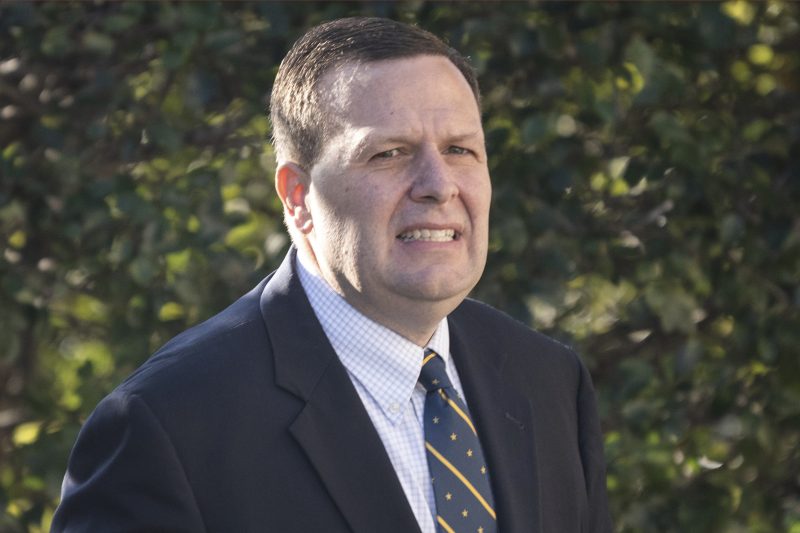The Supreme Court vacated the bribery conviction of a former Indiana mayor Wednesday, a decision that continues a recent trend by the justices to narrow the scope of corruption laws targeting public officials.
In a sharply divided 6-3 ruling that broke along ideological lines, the conservative supermajority found that the federal law prosecutors used to convict James Snyder applies only to situations where officials accept gifts before taking government action — not to getting a reward after, which is known as a gratuity.
The decision drew a strong rebuke from Justice Ketanji Brown Jackson, who in a dissent joined by her liberal colleagues said that “Snyder’s absurd and atextual reading of the statute is one only today’s Court could love.”
Snyder, while the Republican mayor of Portage, Ind., received $13,000 from a local trucking company after the city bought five trash trucks from the business for $1.1 million in 2013. Prosecutors later indicted Snyder, alleging the payment was for steering business to the company.
Snyder was charged under a federal bribery law that makes it a crime for state and local officials to “corruptly” solicit or accept “anything of value from any person, intending to be influenced or rewarded” for an official act. Federal officials argued the statute applies to gratuities.
The former mayor, who has maintained his innocence, claimed the payment was for consulting work. A federal jury convicted Snyder of accepting an illegal gratuity, and he was sentenced to nearly two years in prison.
Snyder appealed his conviction, arguing that the statute used to convict him applies only to bribes given before an act, not gratuities bestowed after. The U.S. Court of Appeals for the 7th Circuit affirmed Snyder’s conviction, but the Supreme Court sided with Snyder.
Writing for the majority, Justice Brett M. Kavanaugh found that Congress narrowly tailored the particular statute to apply to bribes, saying legislators left it to state and local officials to regulate gratuities.
Kavanaugh said the government’s interpretation of the law “would radically upend gratuities rules” and turn the federal statute into a “vague and unfair trap for 19 million state and local officials.”
In reading his opinion from the bench, Kavanaugh explained that the government had not delineated how to distinguish innocuous gratuities such as a parent giving an end-of-the-year gift to a teacher from one that was unethical or even criminal.
States and local governments regulate gratuities in a variety of ways. Some states allow public officials to accept those that fall below a certain threshold, while others bar officials from accepting gifts for specific activities like speaking engagements. Many states make exemptions for gifts from friends and family, travel reimbursements and ceremonial gifts such as honorary degrees.
Federal law has a ban on gratuities for federal officials.
Keith Thirion, a vice president for Alliance for Justice, said the decision was distressing.
“The conservative justices ruling that it should be easier for public officials to receive gifts is perhaps the least surprising outcome of the term,” Thirion, whose organization consists of liberal groups that work on court-related issues, said in a statement. “While claiming to be concerned with bribery, the Court has just greenlit it by allowing payments after the fact in the form of rewards called ‘gratuities.’”
Lisa Blatt, an attorney for Snyder, declined to comment.
The decision is the latest by the court to make it more difficult to prosecute government officials for alleged corruption.
In 2020, the high court overturned the convictions of allies of former New Jersey governor Chris Christie (R) who were prosecuted for retaliating against a political rival in the scandal known as “Bridgegate.” A unanimous court found that the statute the officials were prosecuted under required they seek money or property, not revenge.
In 2016, the Supreme Court overturned the public corruption conviction of former Virginia governor Robert F. McDonnell (R), creating a higher bar for federal prosecutors who want to bring such charges.
The Supreme Court is also deciding this term whether the federal government can charge hundreds of Jan. 6 rioters with an obstruction charge and whether former president Donald Trump can claim immunity in his federal election-interference case.

